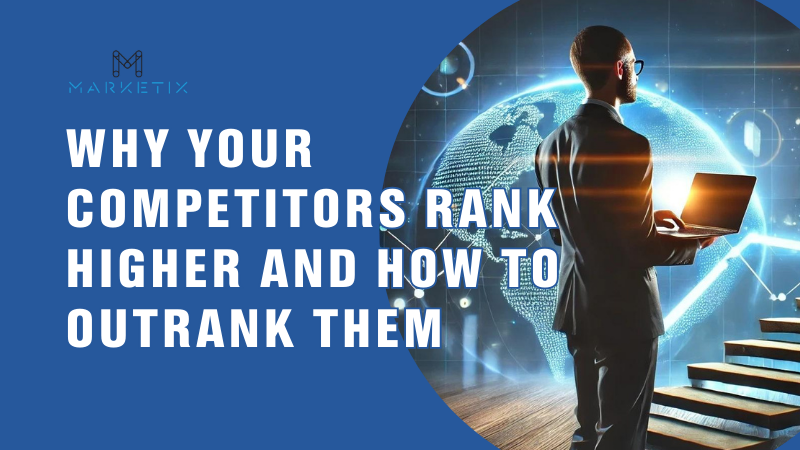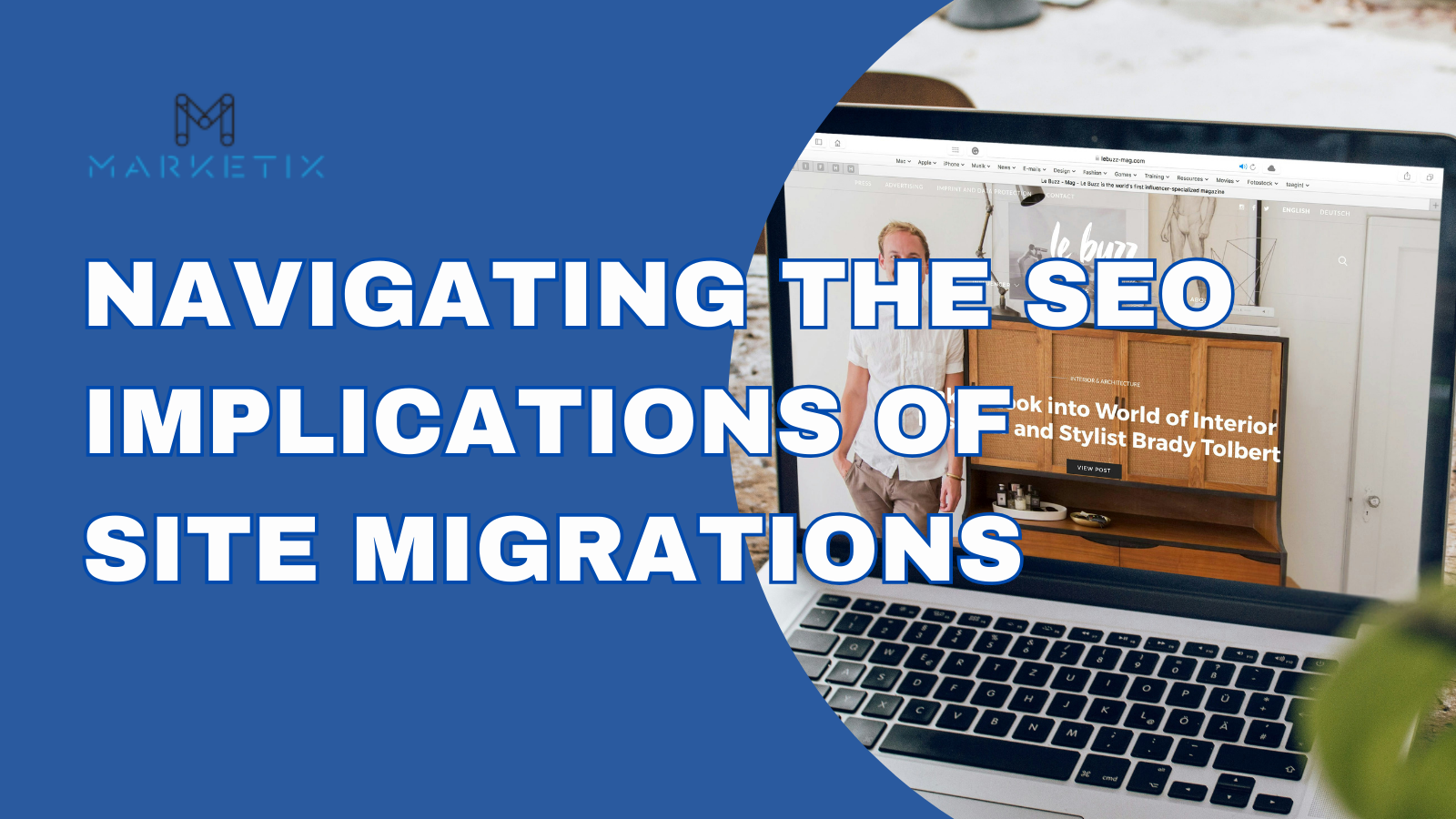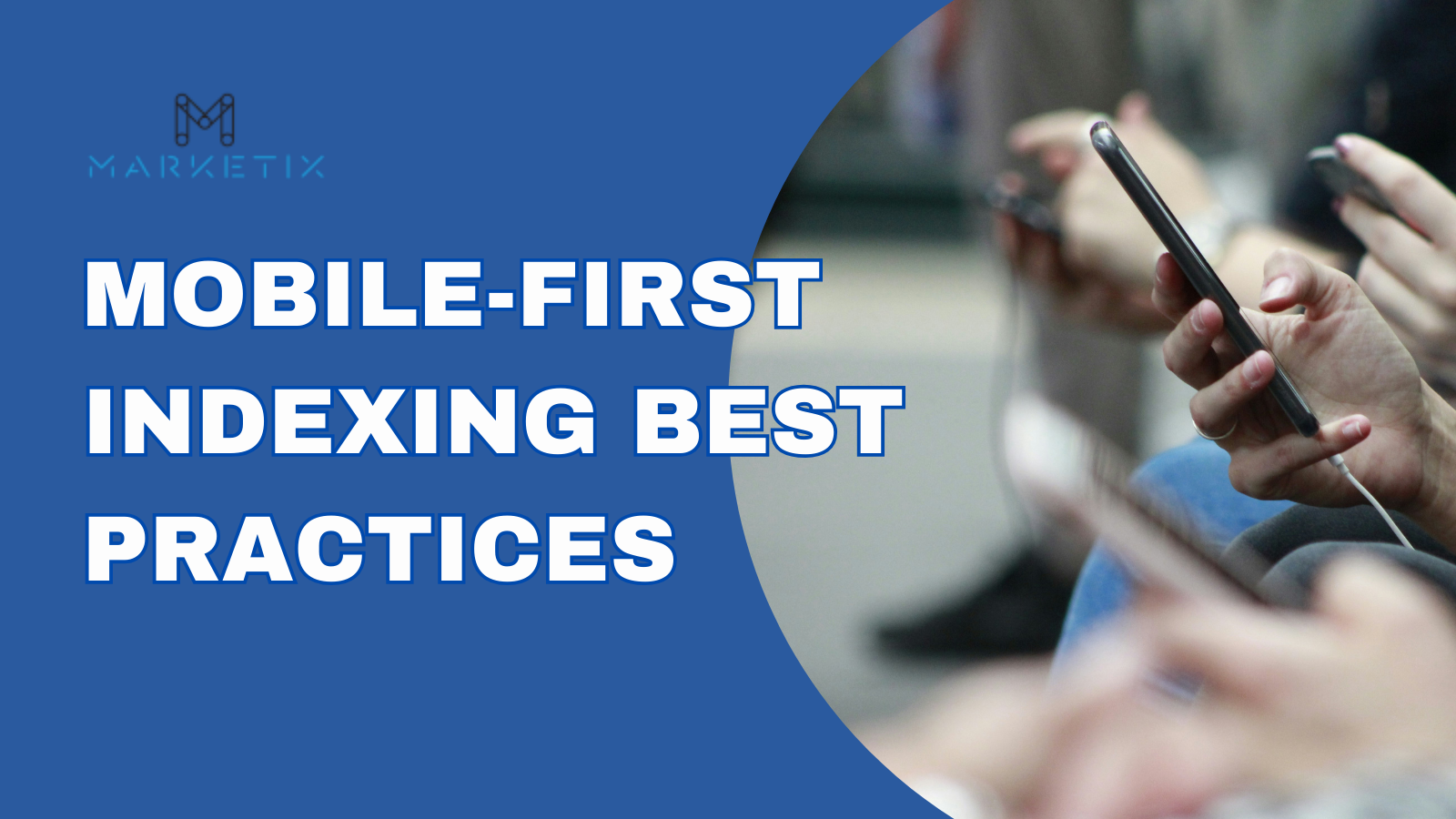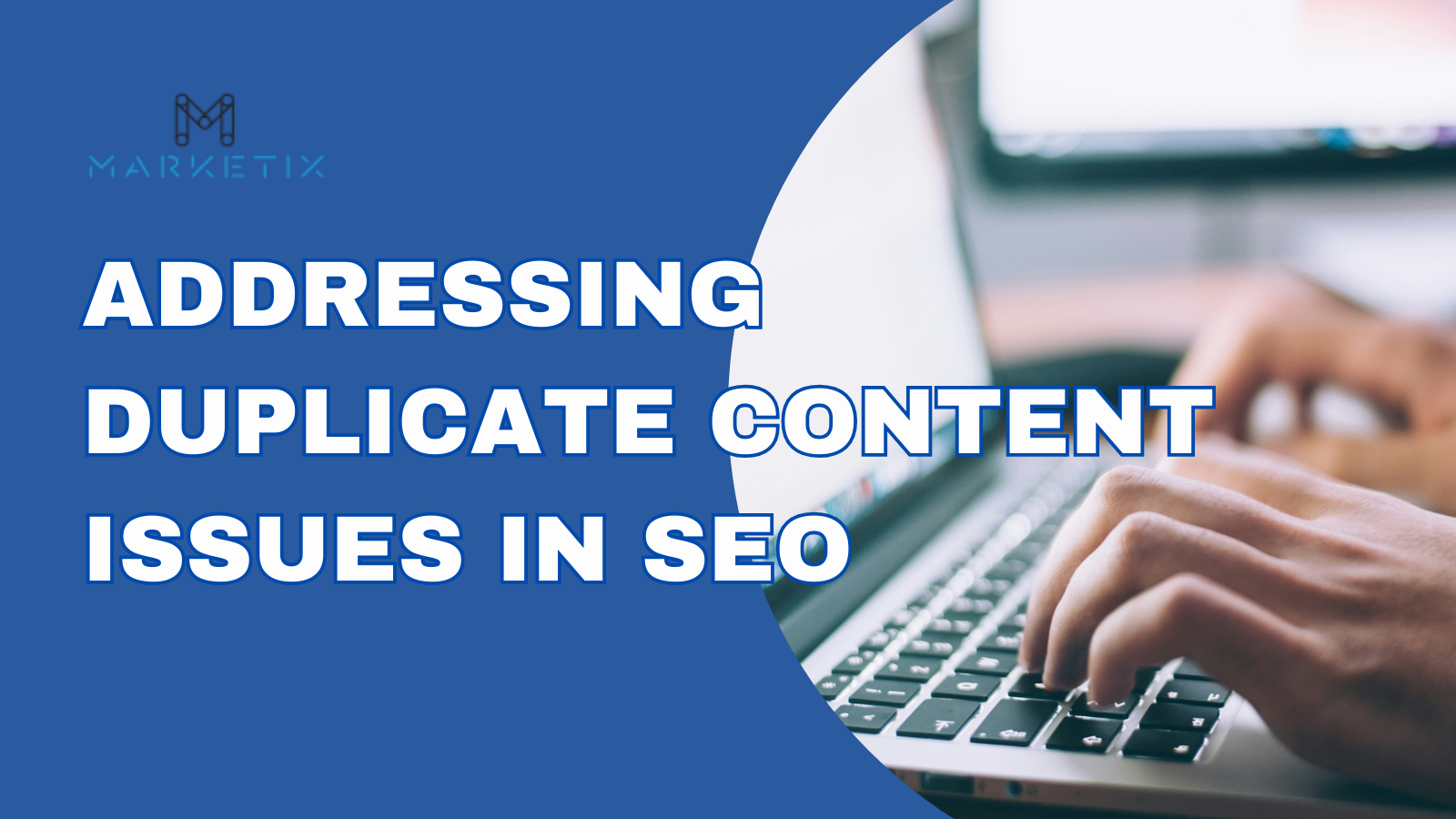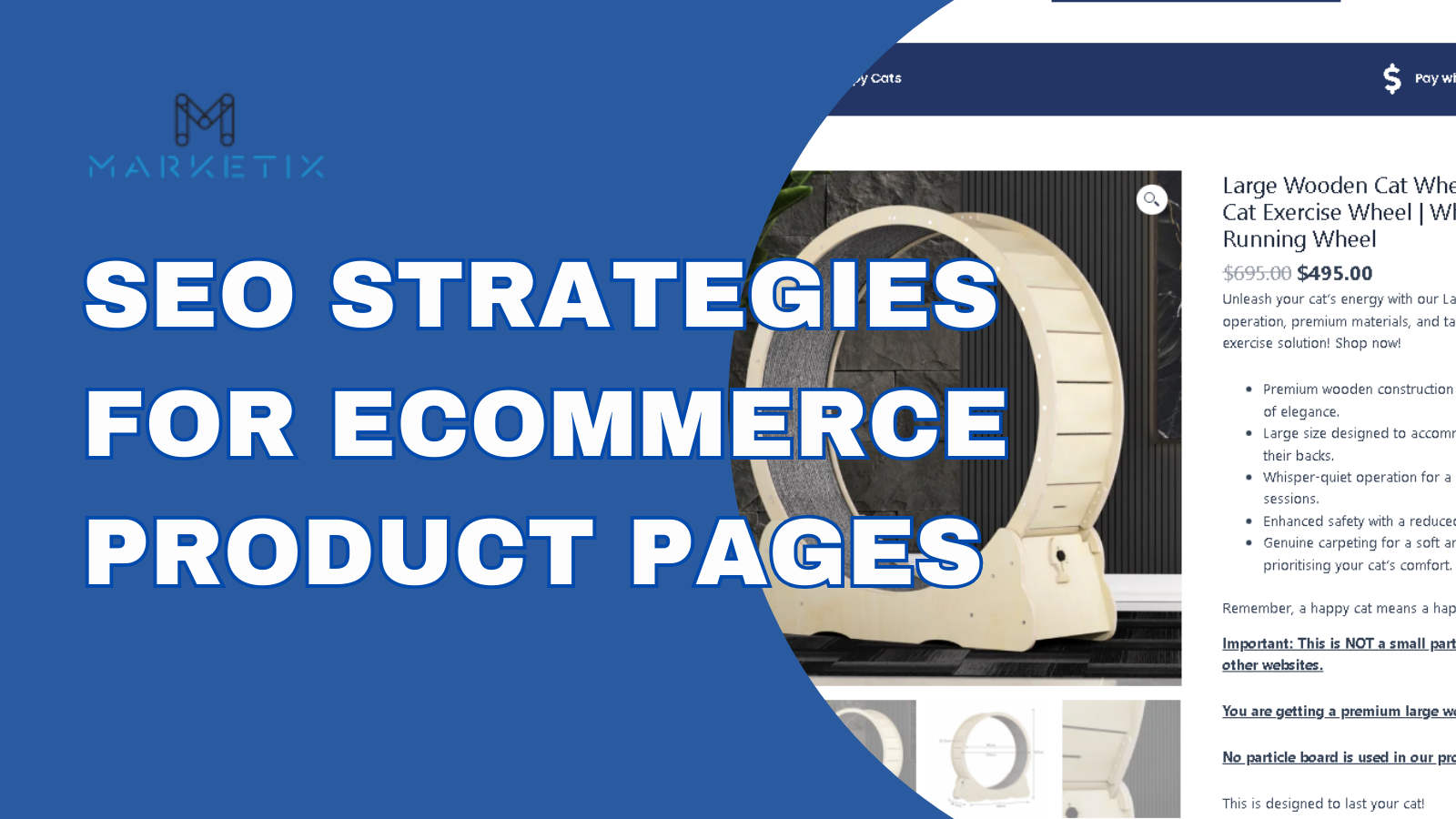- Home
- > The Marketix Blog
- > SEO
What is SEO Management?
Answer: SEO management involves the strategic planning, execution, and monitoring of various SEO tactics to improve a website's visibility and rankings on search engines. This includes optimising on-page elements, building a strong backlink profile, enhancing technical aspects, and creating high-quality content that aligns with search intent.
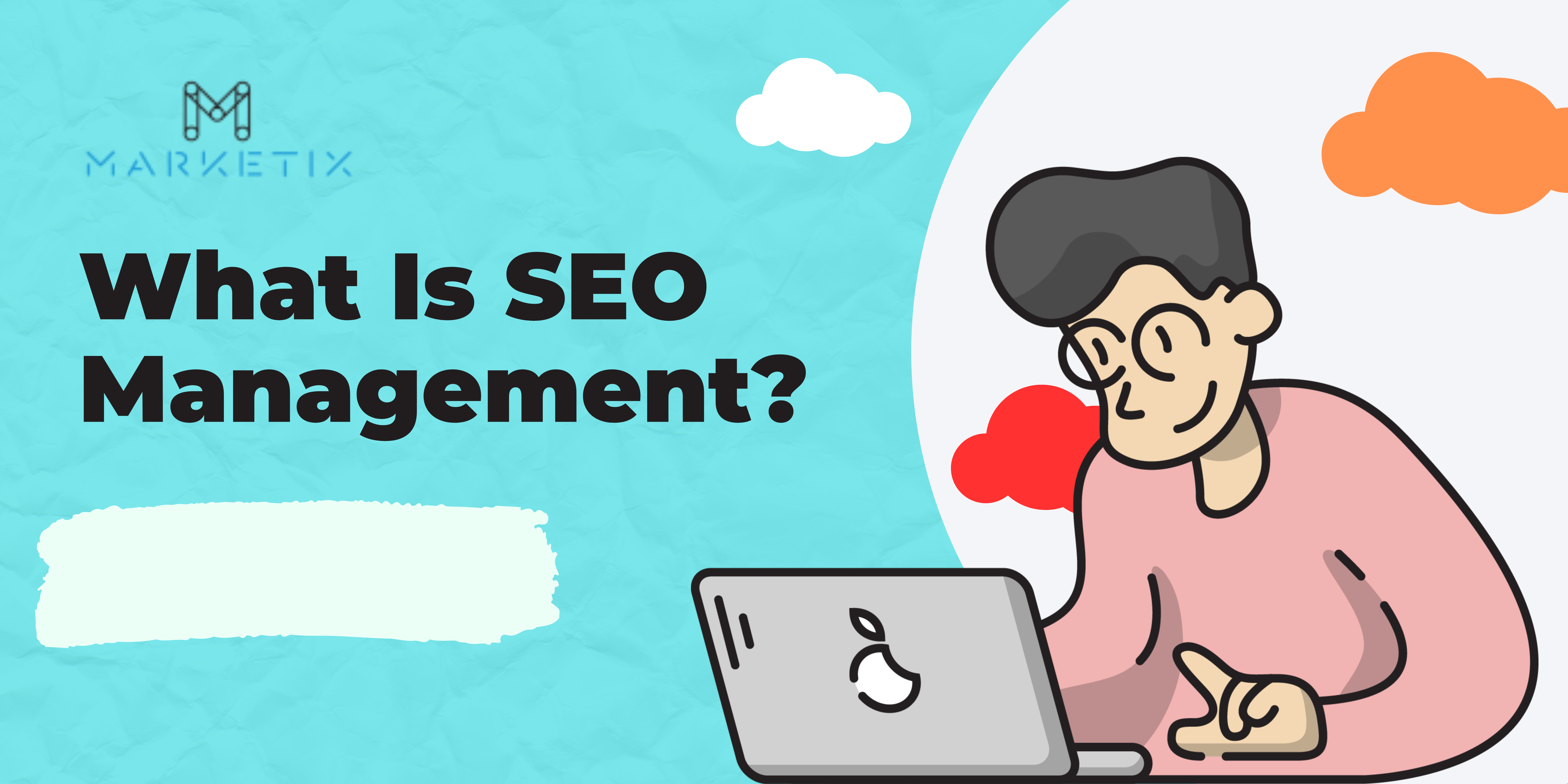
68% of online experiences begin with a search engine, according to BrightEdge. This statistic underscores the importance of effective Search Engine Optimisation (SEO) management in driving website traffic and business growth.
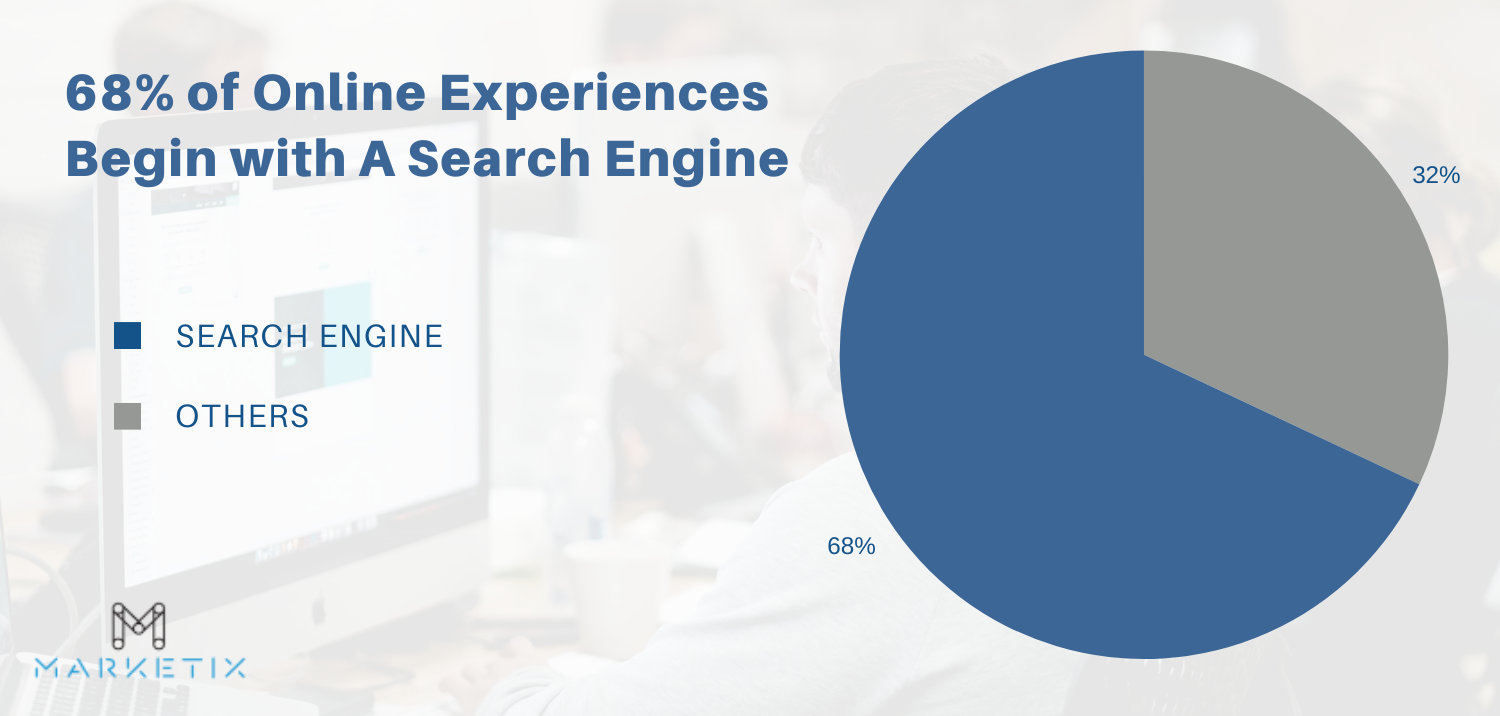
With over a decade of experience as a premier Sydney SEO agency, we at Marketix Digital can exactly tell you how to improve your website performance through SEO management. So keep reading as we discuss the ins and outs of SEO management and share valuable insights to improve your strategy.
What is SEO?
Search Engine Optimisation (SEO) is the process of enhancing your website to increase its visibility for relevant searches. In simple terms, SEO aims to get your website higher up in search engine results so that more people can find and visit your site.
Who doesn't like free traffic? When your pages rank well in search results, you attract more attention, leading to more prospective and existing customers visiting your business.
SEO involves a broad range of strategies. Effective SEO requires a comprehensive approach, addressing both on-page and off-page factors to improve your site's authority and relevance. For a comprehensive explanation of SEO, refer to our comprehensive article, “What is SEO?”.
Key Components of SEO Management
On-Page SEO
On-page SEO focuses on optimising individual web pages to rank higher and earn more relevant traffic in search engines.
The quality of your content must align with the search intent behind your audience's queries. High-quality, relevant content that matches the intent of search queries is important for ranking well in search engine results.
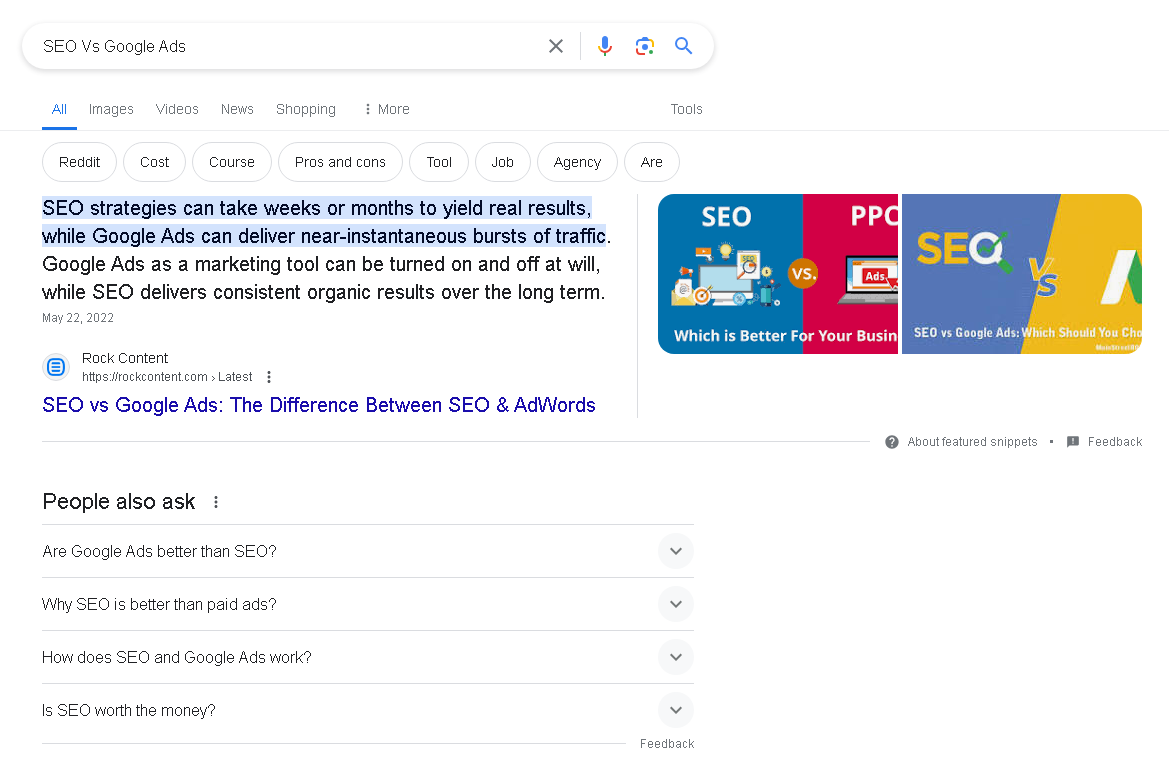
Your content should deliver real value and incorporate the keywords you aim to rank for. Avoid keyword stuffing; instead, use keywords contextually to maintain the natural flow of information.
Conducting a competitive analysis of the top-ranking pages for your target keywords can provide valuable insights. Analyse these pages to understand what content they include and why they rank well. This analysis will guide you in crafting your content and SEO strategy to compete effectively.
On-page SEO includes a wide array of elements beyond the few discussed here, such as internal linking, external linking, metadata optimisation, image optimisation, URL optimisation, page speed improvement, and more. Each element of the on-page SEO checklist—from title tag to fixing broken links—plays a role in enhancing your page's search engine visibility and user experience. It's essential to systematically address these elements to ensure comprehensive optimisation of your website.
Off-Page SEO
Off-page SEO refers to actions taken outside your website to impact your rankings within search engine results pages.
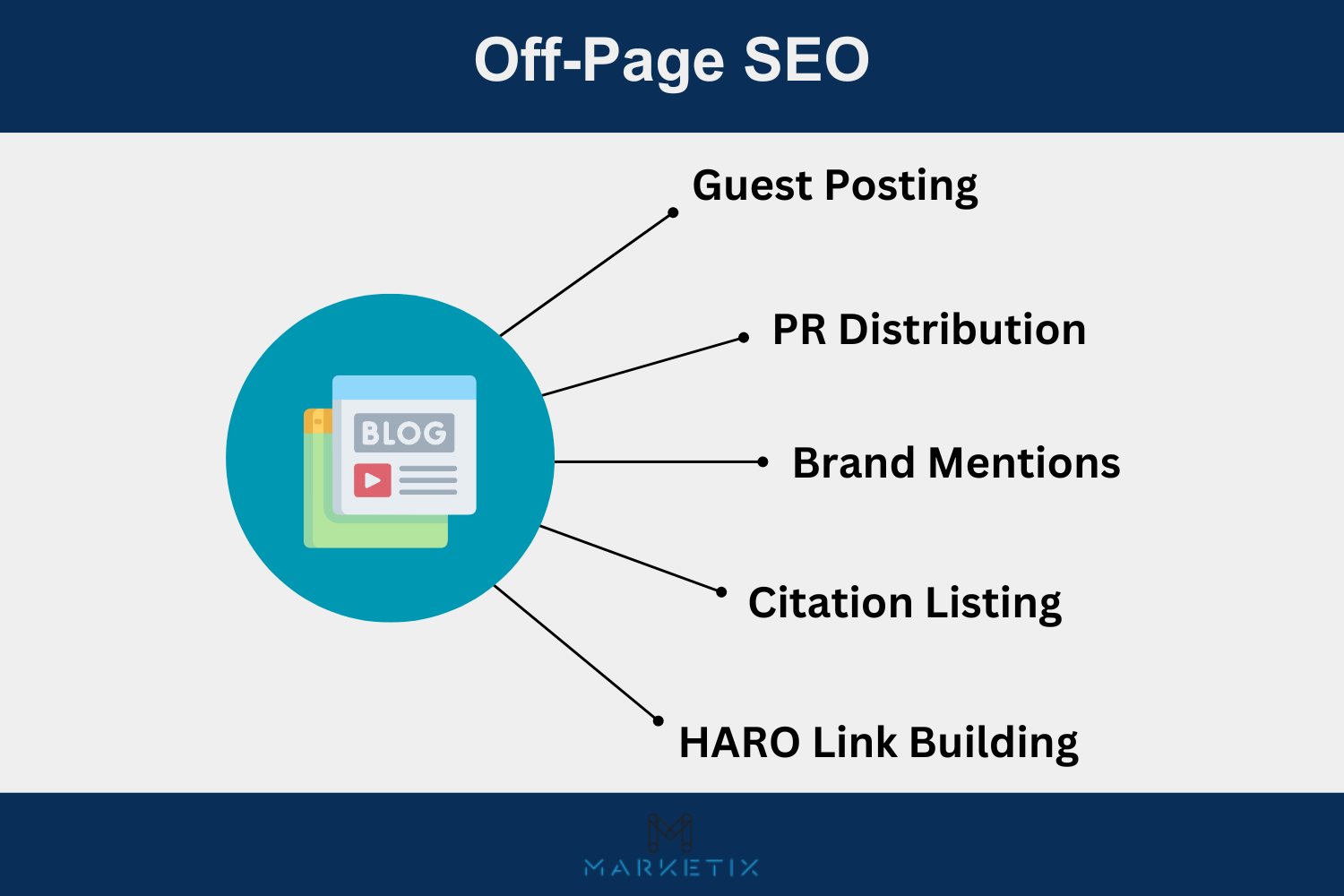
This is primarily driven by backlinks, which are links from other websites to your site. A recent study found that 90.88% of all pages never get any organic traffic from Google, mainly due to the lack of backlinks.
Building a strong backlink profile is important for improving your site's authority and ranking.
Technical SEO
Technical SEO refers to the process of optimising the infrastructure of your website so that search engines can crawl and index it more effectively.
At Marketix Digital, we adopt a distinctive approach to Technical SEO, termed the C.R.I.C.S Framework, which stands for Crawl, Render, Index, Cache, and Serve.
It’s a methodology that enables us to delve deeply into your website's technical structure, ensuring that every element is optimised for maximum visibility and efficiency in search engine results.
Our C.R.I.C.S Framework begins with the 'Crawl' phase, where we assess how Google's bots interact with your site. We identify and rectify any barriers that could prevent effective crawling, such as server issues, incorrect redirects, or poorly configured robots.txt files.
During the 'Render' phase, we focus on how your site's content is processed and displayed by search engines.
Our goal is to make sure that all elements of your website, including JavaScript and CSS, are correctly interpreted by Google.
In the 'Index' stage, our efforts pivot to how your website is catalogued by Google. We always make sure that only the necessary pages are indexed, avoiding duplication or indexing of irrelevant pages.
Our strategy involves a thorough review of your site's structure within Google Search Console, applying no-index tags strategically to streamline and enhance your site's representation in search results.
Lastly, the 'Cache' and 'Serve' phases involve ensuring that the most current and accurate version of your site is stored and presented in search results.
We closely monitor what Google caches and how it serves your pages in search results. This involves regular checks and adjustments to maintain consistency between your live site and how it is represented in Google's cache, which helps in maintaining a robust online presence.
You can use our C.R.I.C.S Framework if you want to address deep-seated issues that could hinder your website’s performance.
Content SEO
Content SEO focuses on the creation and optimisation of content to achieve higher search engine rankings.
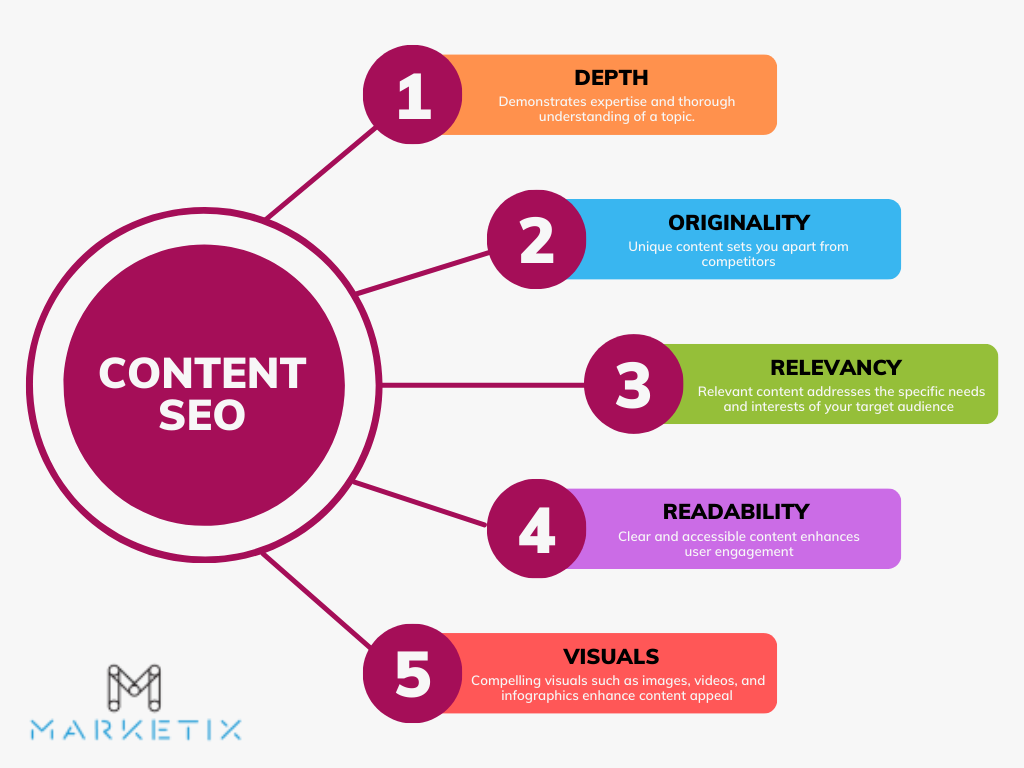
With the rise of AI, search engines like Google have become very strict about content quality. Depth, originality, relevancy, readability, and visuals are all important factors. Creating content that provides real value to users and is optimised for search engines is key to successful SEO.
Local SEO
For businesses looking to attract customers in a specific geographic area, Local SEO is very important.
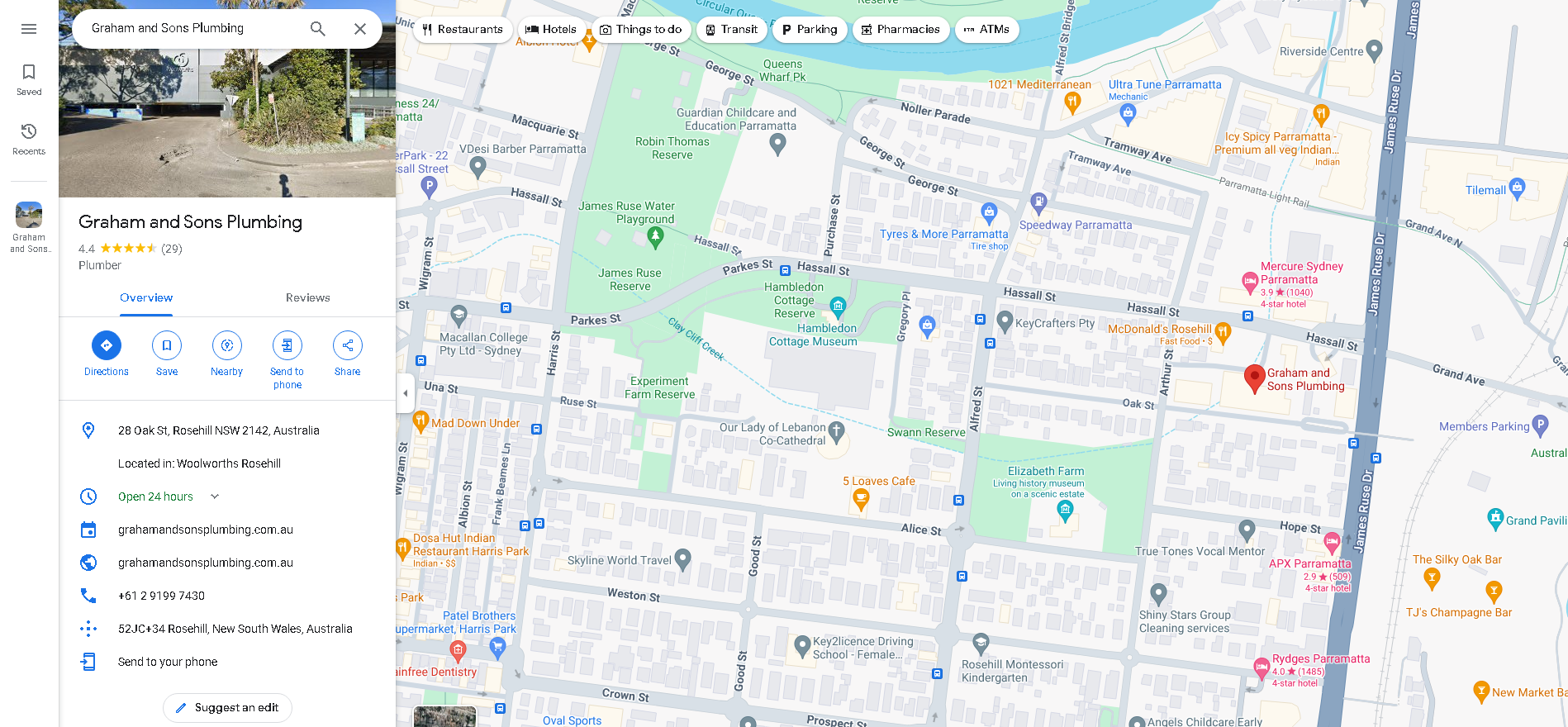
When trying to do local SEO, Google My Business is a mandatory requirement now for success. Ensuring your business is properly listed and optimised on Google My Business can significantly enhance your visibility for local searches.
Additionally, there are many other business citation listings out there, such as Yelp, Yellow Pages, and industry-specific directories, which can further boost your local search rankings.
Marketix Tips to Improve Your SEO Management
Set Priorities & Goals
Clearly define what you aim to achieve with your SEO efforts. Establishing specific, measurable, achievable, relevant, and time-bound (SMART) goals will guide your strategy and help you track progress.
Consider both short-term and long-term objectives, such as increasing organic traffic, improving keyword rankings, and enhancing conversion rates.
Choose the Right Target Keywords
Identify keywords that are relevant to your business and have a good search volume. Use tools like SEMrush and Ahrefs to conduct thorough keyword research.
Focus on long-tail keywords that are more specific and less competitive. Make sure that your selected keywords align with the search intent of your target audience.
Check Out the Competition
We suggest making the competitive analysis very in-depth.
Start by identifying your main competitors using the Ahrefs Top Competitors tab feature or Google itself, and study their websites.
Look at the keywords they are targeting. Examine their content quality and style, noting the topics they cover that generate the most traffic; these should be good initial content ideas.
Analyse their backlink profile to see where their links are coming from and the authority of these sources.
You can list down their top backlinks, as those would be good initial backlink prospects. Pay close attention to their anchor text distribution to understand how they are optimising their internal links and backlinks and which keywords they are emphasising.
Keep up with Google Algorithm Updates
Stay informed about changes in Google's algorithms to adapt your strategy accordingly. Google's core updates can significantly impact search rankings. For instance, the recent March 2024 core update introduced changes that affect how content quality and relevance are assessed.
Regularly review updates from Google's Search Central Blog and adjust your SEO practices to comply with the latest guidelines.
Content Planning and Creation
Develop a content strategy that focuses on creating high-quality, relevant content. Regularly publish blog posts, articles, and other content that address the needs and interests of your audience.
Make sure that your content is well-researched, original, and provides real value. Incorporate keywords naturally and avoid overstuffing. Use various content formats, such as videos, infographics, and podcasts, to engage different audience segments.
We suggest organising your content and creating a content calendar. At Marketix Digital, this is an integral part of our overall plan as it helps us schedule content effectively. It makes sure of consistent publishing and alignment with our marketing goals, allowing for strategic planning and timely adjustments.
Backlink Building
Statistics show that the number one ranking page on Google has an average of 3.8 times more backlinks than pages ranking in positions 2-10. Despite this, only 5% of all websites have backlinks pointing to them. This highlights the importance of building a strong backlink profile to enhance your site's authority.
Focus on acquiring high-quality backlinks from reputable websites in your industry. Guest posting, outreach campaigns, and creating shareable content can help attract valuable backlinks.
Performance Monitoring
Regularly monitor your site's performance to identify areas for improvement. Use analytics tools like Google Analytics and Google Search Console to track key metrics such as organic traffic, bounce rate, and conversion rates.
Additionally, we recommend using Agency Analytics to track the rankings of your target keywords.
Set up regular reporting to review performance trends and make data-driven decisions. Identify any technical issues, content gaps, or declining keyword rankings and address them promptly.
The Role of an SEO Manager
An SEO manager oversees all aspects of a company's SEO strategy. This includes planning, executing, and monitoring SEO campaigns to ensure they meet business objectives.
They conduct thorough keyword research to identify valuable search terms, analyse performance data to measure the effectiveness of strategies and stay updated with the latest SEO trends and best practices to maintain a competitive edge.
At Marketix Digital, we follow solid process documentation to make sure consistency and effectiveness in every campaign. Our team has successfully improved the organic performance of numerous clients’ websites, as showcased in our case studies.
These studies highlight how we've enhanced website performance, increased organic traffic, and boosted search engine rankings for various businesses.
Take the First Step Towards Effective SEO Management
At Marketix Digital, we have the expertise and tools to help you achieve your SEO goals.
Take the first step by leveraging our proven strategies and solid approach, which have led to significant improvements in our client's website performance.
We provide a free audit to identify areas of improvement and tailor our strategies to meet your specific needs. Contact us today to see how we can enhance your online presence and drive more organic traffic and leads to your website.
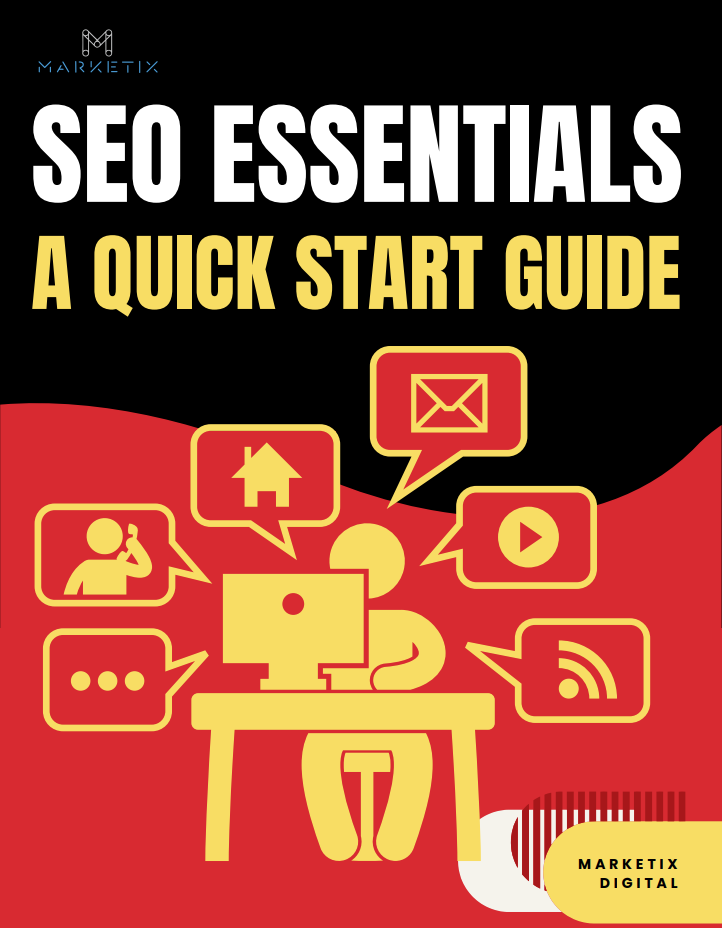
Free Download SEO Book
Download our 24-page SEO book to learn:
- How SEO Really Works
- How to Rank #1
- Content & SEO
- Choosing an SEO Agency
Thank you!
You have successfully joined our subscriber list.

